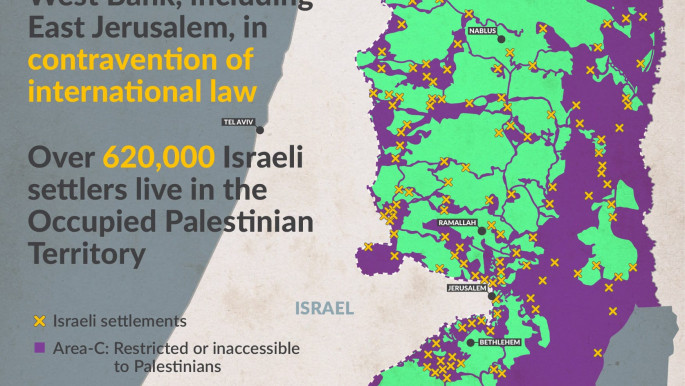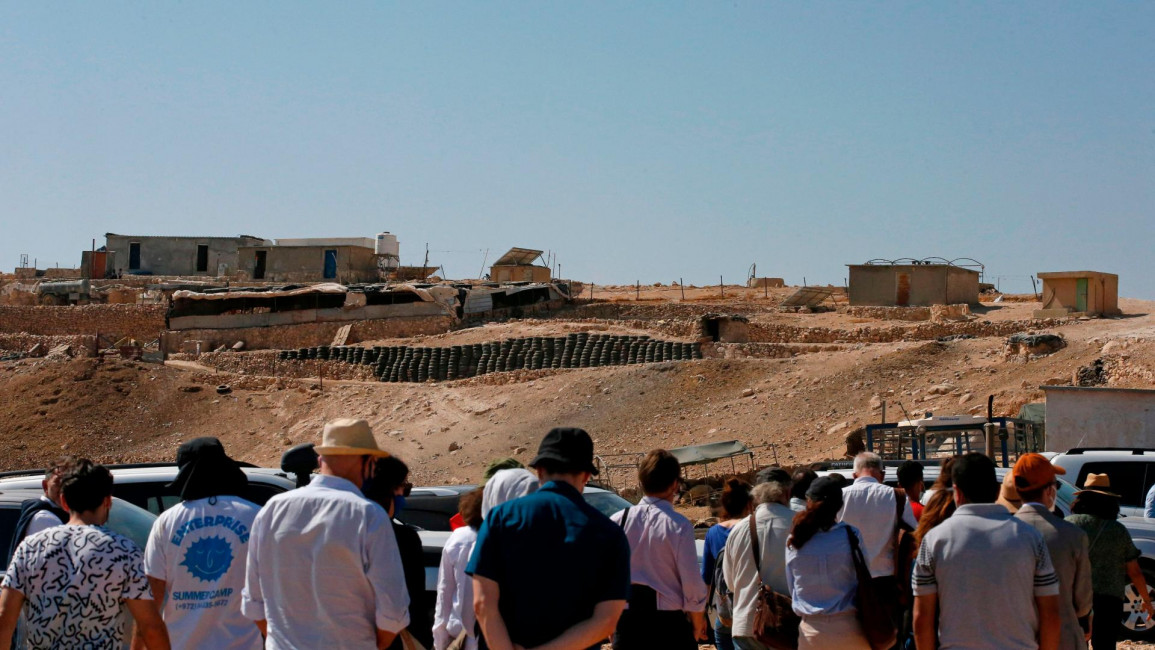Two-decade court battle over West Bank area nears end
But after years of legal wrangling, the Palestinian Bedouins perched there on a rocky hill may be facing final expulsion if Israel's High Court accepts army efforts to declare the area a training site.
Israel's army, which has occupied the West Bank since the 1967 Six-Day War, has no base in Khirbet Al-Majaz, but herds of goats were seen grazing there during a visit by diplomats earlier this week.
In the early 1980s, the army declared the 3,000 hectare (30 square kilometre) territory known as Masafer Yatta at the southern end of the West Bank a restricted military area - calling it "Firing Zone 918" - and claiming it was uninhabited.
The roughly 1,000 Bedouins who live there say Masafer Yatta was their people's home long before Israeli soldiers set foot in the West Bank.
The head of the Israeli anti-occupation NGO B'Tselem, Hagai El-Ad, said: "Declaring the area a firing zone was the excuse. Cleansing the territory of Palestinians is the goal."
Long legal battle
The Bedouin residents of Masafer Yatta, who live across 12 isolated hamlets including Khirbet Al-Majaz, were first kicked out in 1999.
The following year, the Association for Civil Rights in Israel helped some 200 families challenge their expulsion in court.
They secured a temporary reprieve that remains in force, which allowed the Palestinians to stay on the land until a final resolution of the case.
 |
| [Click to enlarge] |
Israel's High Court is set to make a final ruling in the coming months.
The Bedouins, barred from building permanent structures in the area, live in makeshift shelters and are in "constant fear of being uprooted", said Nidal Younes, head of the local community council.
Since the last court hearing in August, "the army has come more often, threatening to tear down our shelters and remove the residents", he said.
'Moral responsibility'
Across much of the occupied West Bank, Palestinians are prevented from building structures without Israeli military permits.
Permits are typically refused and structures without authorisation are often demolished.
On a hill opposite Khirbet Al-Majaz lies the community's school, a four-building campus made mostly of corrugated iron.
The head of the school, Jad Nawajah, said it was "facing serious difficulties".
He said the Israeli army had blocked the installation of "electricity and water networks and the maintenance of the road" that leads to the school.
The army has issued demolition orders for its cistern and toilets.
The European Union's representative in Jerusalem, Sven Kuhn Von Burgsdorff, who led the diplomatic visit, said the bloc "will continue to help this community, out of moral responsibility and humanitarian imperative".
'Central training area'?
Israel's army told AFP that Firing Zone 918 is a "central training area".
Live fire drills are prevented so long as the High Court's temporary injunction of 2000 remains in force, but the army said other exercises take place.
"Over the years, the closure order was violated by Palestinian residents, who began building illegally in this area, which significantly impaired the IDF's ability to conduct training," an army spokesman further said.
|
|
But the Israeli organisation Kerem Navot, which researches West Bank land seizures, said 18 percent of the occupied territory has been classified as a "shooting zone," but only 20 percent of that designated land is actually used for military training.
Earlier this year, the Israeli-Palestinian conflict research institute Akevot unveiled a document from 1981 in which then agriculture minister and future prime minister Ariel Sharon, proposed to set up the firing zone.
Sharon, in the document, is quoted as saying he wanted to give the army "extra training zones", describing these sectors as "vital" to Israel.
Resident Oum Awad, who wore a parchment skin and walked with a hobble, insisted to visitors that Masafer Yatta was her home, regardless of Israeli army classifications
Even if Israel deprives her of "the most basic things... we don't want to leave our land," she said.



